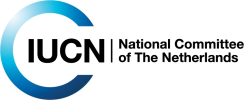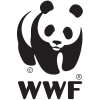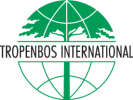- Home
- Resources Preview
MoMo4C Academy
Umami knausgaard lomo, drinking vinegar shaman bitters seitan franzen venmo scenester selfies. Trust fund echo park green juice, messenger bag gluten-free affogato paleo pickled. Poke freegan lo-fi, you probably haven't heard of them trust fund master cleanse blue bottle pitchfork ennui glossier actually distillery. Pop-up try-hard readymade bespoke cliche fixie intelligentsia pabst tumeric chambray subway tile kitsch enamel pin stumptown kinfolk.
Optie 2
Resources
- All
- Business skills
- Climate finance
- Communication
- Conservation finance
- Landscape approach
- Mobilising funds
Organizing for Sustainability: A guide for developing new business models
This Massive Open Online Course (MOOC) provides a structured approach to developing a sustainable business model. It consists of seven chapters, each based on five units. Each unit addresses a specific element of developing a business model. The MOOC is designed in a step-by-step manner, following the structure of the book Organizing for Sustainability – A Guide to Developing New Business Models. The MOOC can be followed for free.
What is sustainable finance?
Sustainable finance and ESG investing are trending topics – but what do these terms really mean? How can they help mobilize funds to combat climate change and restore the Earth’s dwindling biodiversity? From definitions to key players, this video explains the basics of sustainable finance.
Five lessons on business engagement for nature conservation
Around the world, ecosystems and the services they provide are under pressure. In order to safeguard these, nature organisations need to engage companies and governments to work towards joint solutions. How to make such collaborations work? This article presents 5 useful tips for NGOs and businesses to engage towards green and responsible business operations.
Bankable Nature Solutions
There is a quest for bankable projects which have the ability to create positive environmental returns that lead to improved biodiversity and climate mitigation and/or adaptation, while also being attractive for financial institutions to invest in. WWF refers to these bankable projects as Bankable Nature Solutions. This publication serves an introduction to Bankable Nature Solutions and presents 13 case studies that offer different solutions that generate a financial return and have a positive impact on nature and climate.
State of Finance for Nature: Tripling investments in nature-based solutions by 2030 (May 2021)
The new “State of Finance for Nature” report assesses how much public and private investment is being directed towards nature-based solutions and provides insights into the extent to which governments, businesses and financiers are “walking-the-talk”.
A Business Approach to Sustainable Landscape Restoration
This course is aimed at beginners, business students and professionals as well as anyone with an interest in business-driven landscape restoration. It offers comprehensive knowledge of landscape degradation and landscape restoration from both the perspective of natural science and from an economics and business administration perspective.
Select by resource item
Optie 3
Resources
| Image | Theme(s) | Partner | Title | Description | Link |
|---|---|---|---|---|---|
|
Partner:
Commonland
|
Title:
Organizing for Sustainability: A guide for developing new business models
|
Description:
This Massive Open Online Course (MOOC) provides a structured approach to developing a sustainable business model. It consists of seven chapters, each based on five units. Each unit addresses a specific element of developing a business model. The MOOC is designed in a step-by-step manner, following the structure of the book Organizing for Sustainability – A Guide to Developing New Business Models. The MOOC can be followed for free. | Read more | ||
|
Title:
What is sustainable finance?
|
Description:
Sustainable finance and ESG investing are trending topics – but what do these terms really mean? How can they help mobilize funds to combat climate change and restore the Earth’s dwindling biodiversity? From definitions to key players, this video explains the basics of sustainable finance. | Read more | |||
|
Partner:
IUCN NL
|
Title:
Five lessons on business engagement for nature conservation
|
Description:
Around the world, ecosystems and the services they provide are under pressure. In order to safeguard these, nature organisations need to engage companies and governments to work towards joint solutions. How to make such collaborations work? This article presents 5 useful tips for NGOs and businesses to engage towards green and responsible business operations. | Read more | ||
|
Title:
Bankable Nature Solutions
|
Description:
There is a quest for bankable projects which have the ability to create positive environmental returns that lead to improved biodiversity and climate mitigation and/or adaptation, while also being attractive for financial institutions to invest in. WWF refers to these bankable projects as Bankable Nature Solutions. This publication serves an introduction to Bankable Nature Solutions and presents 13 case studies that offer different solutions that generate a financial return and have a positive impact on nature and climate. | Read more | |||
|
Theme(s):
Conservation finance
|
Title:
State of Finance for Nature: Tripling investments in nature-based solutions by 2030 (May 2021)
|
Description:
The new “State of Finance for Nature” report assesses how much public and private investment is being directed towards nature-based solutions and provides insights into the extent to which governments, businesses and financiers are “walking-the-talk”. | Read more | ||
|
Title:
A Business Approach to Sustainable Landscape Restoration
|
Description:
This course is aimed at beginners, business students and professionals as well as anyone with an interest in business-driven landscape restoration. It offers comprehensive knowledge of landscape degradation and landscape restoration from both the perspective of natural science and from an economics and business administration perspective. | Read more |


